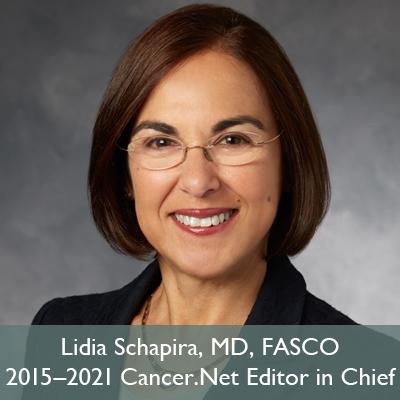
ASCO’s 2019 Advance of the Year is “progress in treating rare cancers”—and there is good reason why this is so. Living with a rare cancer, such as a neuroendocrine tumor or desmoid tumor, presents a unique set of challenges. Less information is available about the disease, and there are few experts who are knowledgeable about and experienced in treating them. Because there are fewer patients with rare cancers, it is also more difficult to conduct clinical trials to learn more about these diseases. Collaboration among the community of experts and patients is essential for progress.
People living with rare cancers have often been misdiagnosed and have difficulty getting expert care. I’ve learned they welcome the opportunity to connect with peers who can offer information and advice in the context of a supportive community. And they are keen to participate in clinical research. In 2018, we saw tremendous progress in finding effective therapies for some rare forms of uterine, neuroendocrine, joint, and thyroid cancers, as well as sarcomas.
Let’s consider 3 examples from ASCO’s Clinical Cancer Advances report. For patients with neuroendocrine tumors, an international clinical trial led to the approval of a new drug (177Lu-Dotatate, or Lutathera) that can improve quality of life and extend life. Women with a rare form of uterine, or endometrial, cancer called serous carcinoma also have benefited from recent research, as an “old drug” (trastuzumab, or Herceptin) was shown to be effective in treating this aggressive cancer. And patients with a rare type of sarcoma known as a desmoid tumor can benefit from the completion of the first randomized, global phase III clinical trial that studied the effectiveness of sorafenib (Nexavar). Finding enough patients with a desmoid tumor to conduct this trial was a challenge, and it is exciting that it was successfully completed. Researchers were able to include 87 people with progressive desmoid tumors in this study. They found that sorafenib improved outcomes and thus discovered a potential new treatment option for people with this type of tumor.
Progress in rare cancers clearly rests on a collaboration between patients and clinical researchers. Communication is essential, too, so potential study volunteers have access to information about clinical trials and to research teams. This discussion can often begin between the patient and members of their health care team. It is also important to ensure that people have access to the information they need to make informed decisions. A knowledgeable community of patients and clinicians can provide support and advice and also take an active role in shaping research that has the potential to improve the treatment and care of people with cancer. Increasingly, this community can be virtual, especially for people living with a rare cancer. Online communities can play an important role in connecting people, sharing valuable information, and spreading the word about clinical trials.
